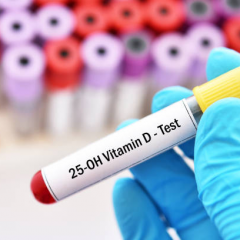What is the research about?
Chronic pain is a common and debilitating condition that affects millions of people worldwide. However, the biological mechanisms that underlie chronic pain are not well understood. One possible factor that may be involved is inflammation, which is a natural response of the body to injury or infection. Inflammation appears to be linked to pain, but it can also be influenced by various biopsychosocial factors, such as demographics, socioeconomic status, psychological well-being, and lifestyle habits. In this study, we aimed to investigate the relationship between inflammation and chronic pain in a large and diverse population, and to examine how this relationship is affected by different biopsychosocial factors.
What did the researchers do?
We used data from the UK Biobank, which is a large-scale health database that includes information from over 500,000 participants. We measured inflammation by looking at the levels of blood C-reactive protein (CRP), which is a protein that is general marker of inflammation. We classified chronic pain as participants experiencing pain in particular regions of the body (such as the head, neck, back, or joints) for more than three months. We used data on various biopsychosocial factors, such as age, gender, socioeconomics, smoking, alcohol, physical activity, mental health, and medical conditions. We used statistical methods to analyse the data and to adjust for the potential confounding effects of these factors on the relationship between inflammation and pain.
What you need to know:
The findings of this research are relevant to anyone interested in understanding chronic pain, especially health professionals, researchers, policy makers, and people living with chronic pain. The findings may help to identify the role of inflammation in chronic pain and to develop more effective and personalised treatments that consider the biological and the psychosocial aspects of pain. It should be noted that the cross-sectional design of the analysis does not permit testing of causal relationships, so longitudinal investigations are needed to interrogate potential causal pathways linking inflammation with chronic pain.
What did the researchers find?
We found that:
- CRP was higher in people with a range of chronic pain conditions compared to people without pain, indicating that inflammation is associated with chronic pain.
- This association was weaker but remained significant after adjusting for various biopsychosocial factors, implying that there may be mechanistic links between inflammation and chronic pain.
How can you use this research?
This research provides new insights into the biological mechanisms of chronic pain and the possible role of inflammation in this process. It also highlights the importance of considering the biopsychosocial factors that may influence the inflammatory response to pain and the pain experience. This research may inform better targeted treatments for chronic pain and may also lead to future research exploring causal relationships between inflammation and chronic pain, the underlying mechanistic pathways, and the potential interventions incorporating the inflammatory response in management of chronic pain.
About the researchers

- Scott Farrell (Research Fellow), Nigel Armfield (Senior Research Fellow), Rachel Elphinston (Senior Research Fellow), Martin Collyer (Honours student), Michele Sterling (Professor, Program Leader) at RECOVER Injury Research Centre and NHMRC Centre for Research Excellence: Better Health Outcomes for Compensable Injury, The University of Queensland.
- Peter Cabot (Associate Professor) at School of Pharmacy, The University of Queensland.
- Paul Gray (specialist pain physician, Director) and Gunjeet Minhas (specialist pain physician) at Tess Cramond Pain & Research Centre, Royal Brisbane and Women’s Hospital.
Citation
Farrell SF, Armfield NR, Cabot PJ, Elphinston RA, Gray P, Minhas G, Collyer MR, Sterling M. C-reactive protein (CRP) is associated with chronic pain independently of biopsychosocial factors. J Pain. 2023. doi: 10.1016/j.jpain.2023.09.008
Keywords
Chronic pain; inflammation; UK Biobank; neck pain; back pain; biomarkers
Contact information, acknowledgements
Dr Scott Farrell – Research Fellow, The University of Queensland (scott.farrell@uq.edu.au)
This research has been conducted using the UK Biobank Resource under Application Number 69067.



